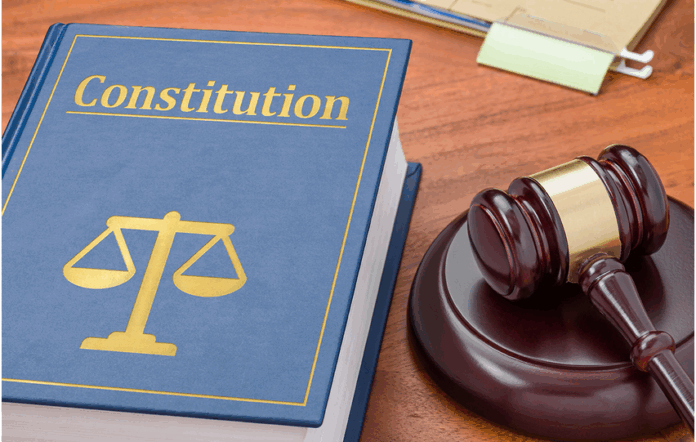Our Constitution Is Not a Quick Fix: Resist These Rushed Amendments
By Ann-Marie Sichizya
Zambians, wake up! The government is quietly pushing a bundle of so-called “non-contentious” constitutional amendments presented as cheap, technical fixes, but make no mistake: these changes strike at the heart of our democracy. As the Jesuit Centre for Theological Reflection (JCTR) warned, past reforms done in secret were “driven by the ruling party’s motive to entrench itself in power”. What “non-contentious” really means is that you have had no say. Citizens have been asked only to rubber-stamp a draft, not to shape it. And critical observers point out that even harmless-sounding tweaks can rewrite the rules of power. For example, removing the cap on nominated MPs could hand one party the tools to fill Parliament with loyalists , a move that civil society warns would “undermine our democracy”. Likewise, a hasty overhaul of our electoral system (even if touted as improving gender balance) will introduce confusing new ballot structures without voter education, likely increasing spoiled votes and disenfranchising ordinary Zambians. These are not minor details – they define how our votes count. When JCTR says a constitutional amendment process must be “people-driven”, this is exactly what it means.
Danger in Disguise: “Non-Contentious” Changes Are Not Harmless
Don’t be fooled by the label “non-contentious.” Who decided these clauses were innocuous, and on what basis? Civil society groups have rightly demanded transparency: “The thirteen areas the government has termed as non-contentious are not the result of a transparent consultation. Who decided that the proposals are not contentious?” This isn’t a healthy democracy it’s smoke and mirrors. Under the guise of being “efficient,” the administration openly admits it will avoid expensive procedures like referenda or broad consultations. But saving money cannot come at the expense of justice. Every change in the constitution alters our nation’s future. We cannot allow vital decisions about power and rights to be made behind closed doors.
Consider some of these so-called fixes. Adding dozens more MPs to Parliament or scrapping term limits for nominated seats may sound technical, but they dramatically tilt the electoral balance. Experts caution that simply increasing Parliament’s size without improving accountability will create more bureaucracy, not better representation. Likewise, any plan to tinker with how we vote (for example, mixing proportional representation with first-past-the-post) must be properly studied. Introducing a complex new voting system now, when even many educated Zambians misread the current ballot, is a recipe for chaos. We could see a flood of spoiled ballots, which effectively silences the people it’s supposed to empower. In short, these “non-controversial” amendments include items that should be hotly debated: they shape how your vote translates into power. It is cynical to call them non-contentious while sidelining the very citizens they affect.
A Process Without the People: No Consultation Means No Democracy
The bigger outrage is how this process is being run, or rather, not run. Instead of a broad national dialogue, the government has laid out a fait accompli. As one civil society briefing bitterly noted, the proposed roadmap was “presented as something to be accepted by citizens,” and our roles were “relegated to discussing and agreeing on the Bill after it is drafted.” In other words, Zambians have been robbed of their agency. No wonder JCTR and other reform advocates are alarmed: a legitimate constitutional review demands stakeholder consensus, chiefs, churches, civil society, opposition, and grassroots all involved from the start. Right now, we have the opposite: a top-down scheme that excludes essential voices. This exclusion “undermines the democratic legitimacy” of the process.
Even the government’s handpicked committee work is not what it seems. Some civil society members took part in an Electoral Commission review committee in good faith, believing its recommendations would feed into a broader reform. Now the government feigns endorsement from that process, as if casual participation equals approval of this piecemeal approach. It’s a bait-and-switch: we spoke in good faith, but our input is being used to rubber-stamp a plan we never agreed to. JCTR long ago cautioned that reform bodies operating under strict presidential terms of reference merely do the president’s bidding. Today we see that play out in real time.
In short, there is no substitute for you: the father, the mother, the young voter. Every Zambian should be involved in shaping our “people-driven” constitution – yet we are being sidelined. That is precisely why critics say any changes to the constitution deserve the fullest scrutiny and debate. Democracy cannot be fast-tracked. It cannot be handed out in piecemeal scraps by those in power.
Focus on Real Lives, Not Political Theater
And what is the government doing while it rushes this process? According to the Archdiocese of Lusaka, it is offering an astonishing diversion from our real problems. The Presbyteral Council has reminded the state that true reform means improving people’s lives, not staging procedural battles in Parliament while citizens struggle with food prices, power cuts, or broken clinics. There’s no point in tinkering with the ballot while ignoring what the vote is supposed to deliver: dignity, development, and fairness.
Let’s be clear: constitutional reform is not a technical chore. It is not a side hustle for legal committees. It is a deeply political act that determines who holds power, how long, and in whose name. Any change must be slow, careful, honest, and above all, owned by the people. That is what a people-driven constitution demands.
Note: this opinion article contains JCTR concerns



We are going to amend our constitution whether you like it or not.
It is not JCTR who demanded independence, now in 1963.
Comments are closed.